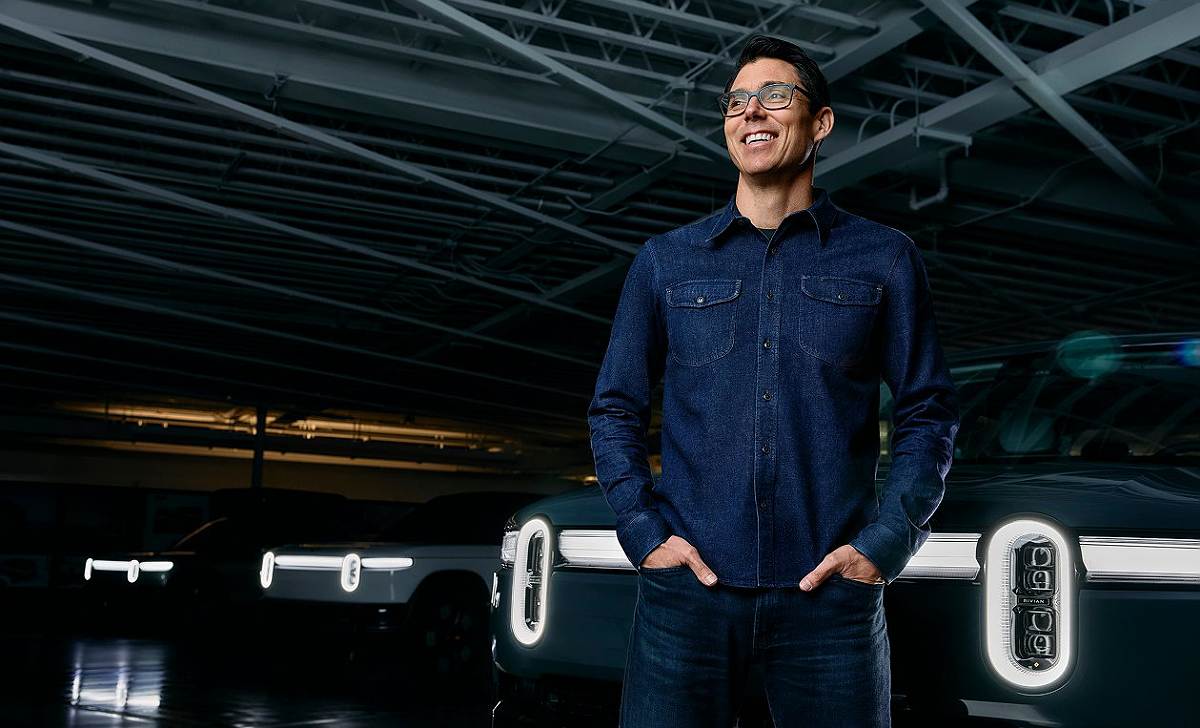Rivian’s RJ Scaringe just sounded the alarm on how President Trump’s new auto tariffs could throw a wrench into the gears of the U.S. electric vehicle industry. And Rivian isn’t the only one feeling the heat.
With new 25% tariffs on imported vehicles kicking in as of April 3, 2025, and additional tariffs on auto parts arriving this May, Rivian is now navigating one of its most complex challenges yet — and it all comes down to supply chains and skyrocketing costs.
Rivian: Built in the U.S., But Not Immune to Global Tensions
Yes, Rivian assembles its R1T truck, R1S SUV, and commercial vans right here in Normal, Illinois. But as CEO RJ Scaringe explained in a recent interview with Fox Business, being made in America doesn’t mean it’s made entirely from American parts.
“The supply chain is so complex,” Scaringe said.
“From headlights and tow hooks to tires and structural components, each part comes from a web of suppliers — tier two, tier three, sometimes more.”
That tangled web of international parts sourcing is exactly what makes Trump’s tariffs so problematic.
Rare-Earth Materials: A Silent Crisis for EVs
The challenge goes beyond just import taxes.
In response to Trump’s 145% tariff on Chinese goods, China has started restricting the export of rare-earth materials — which are absolutely essential for building EV motors and batteries.
“The trade restrictions we’re seeing around rare-earth metals out of China — that’s a real challenge for electric vehicles,” Scaringe emphasized.
Here’s why it matters:
- Rare-earth elements are critical for EV motor magnets
- Most of the world’s rare-earth processing is done in China
- No rare-earth = no motors = no Rivians on the road
Tariffs Could Drive Up EV Prices by $5K to $10K
According to Wedbush analyst Dan Ives, Trump’s auto tariffs aren’t just a policy decision — they’re a potential industry earthquake.
“A U.S. car made entirely with U.S. parts is a fictional tale,” Ives said.
“These tariffs could raise vehicle prices between $5,000 to $10,000.”
That’s a serious hit — especially for companies like Rivian, where the starting price is already near $70,000. There’s not much wiggle room for price hikes before customers start turning elsewhere.
Battery Costs Were Falling — Until Now
Goldman Sachs recently predicted that EV battery costs could drop by 50% between 2023 and 2026 — a huge win for affordability and adoption.
But with China’s export restrictions tightening and raw material prices potentially surging, those cost reductions are now in jeopardy.
If battery costs go back up? That impacts every EV automaker — from Tesla to Rivian to legacy carmakers trying to make the EV shift.
What Could Happen Next?
Wedbush believes there’s a chance Trump might refocus tariffs on fully assembled vehicles instead of parts, which could ease the burden on automakers like Rivian. But for now, the damage is already being felt:
- Supply chains are strained
- Costs are rising
- EV production timelines could face delays
For Rivian, these disruptions threaten the company’s growth and competitiveness — just as it’s gaining momentum in the EV space.
Will EVs Survive the Tariff Storm?
Rivian isn’t giving up. But it’s clear that global politics, material sourcing, and supply chain complexity are all converging at a tricky time for EV makers.
If you’re an EV buyer, expect prices to remain volatile. And if you’re an automaker like Rivian — or even Tesla — you’re likely watching every tariff headline like it’s a stock ticker.
What Do You Think?
Should EV makers like Rivian get special considerations to avoid tariff pain?
Are tariffs necessary protection or a risk to innovation?
Let us know your thoughts in the comments. This debate isn’t just about cars — it’s about the future of how America moves.
